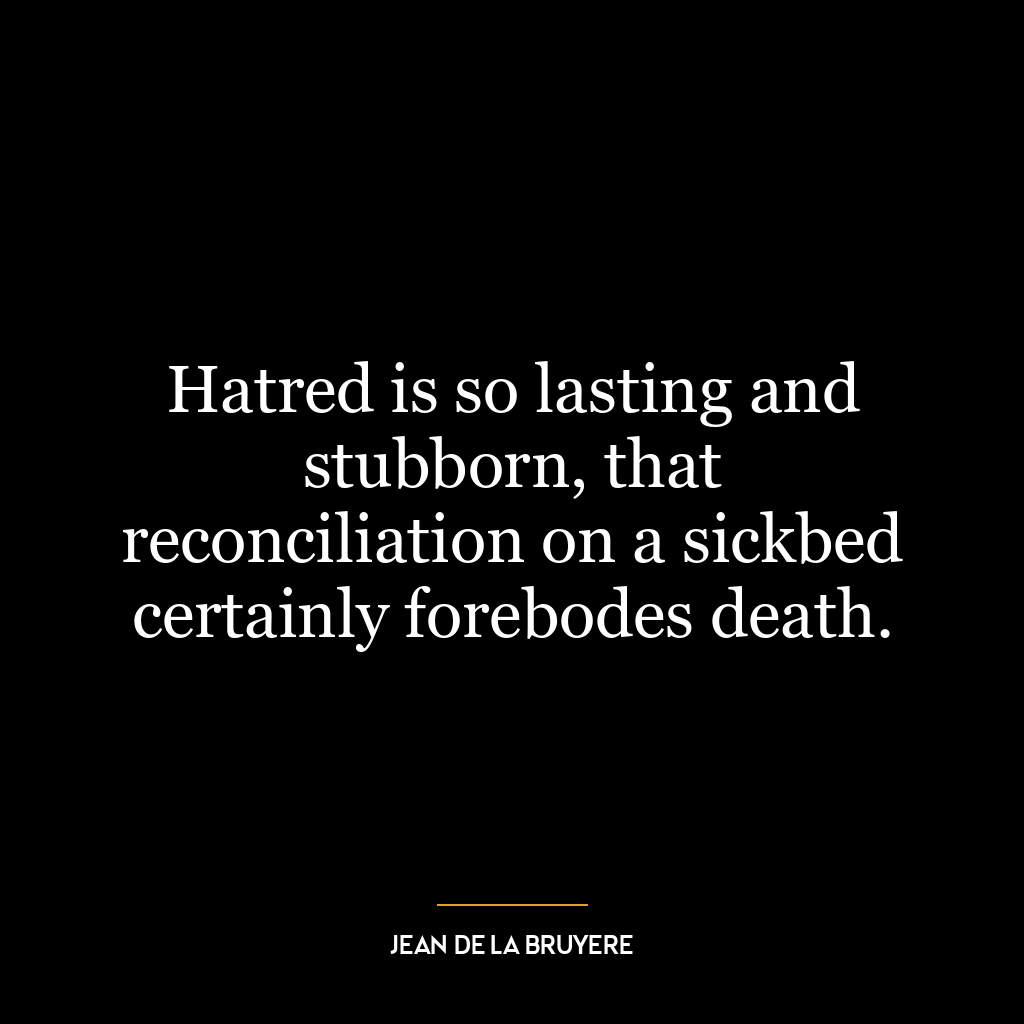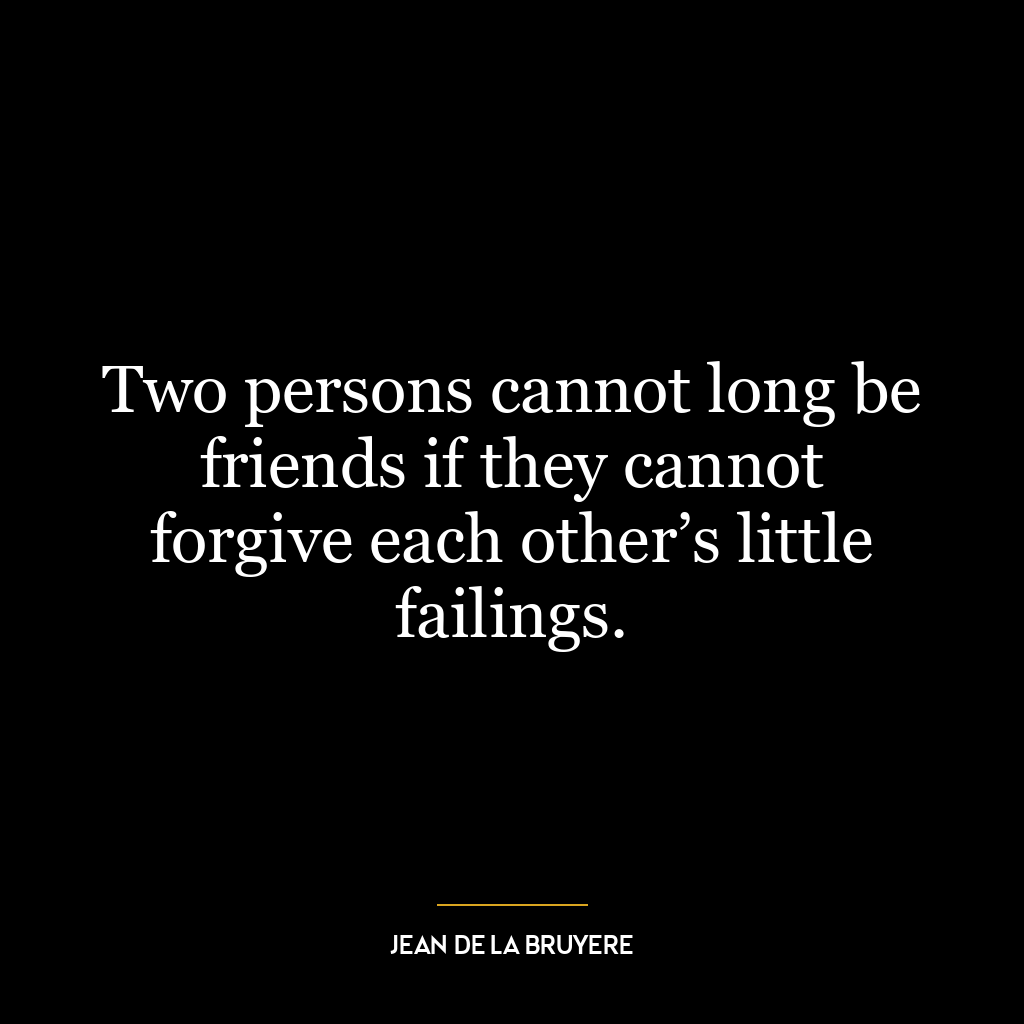Unless you have forgiven others you read your own death warrant when you repeat the Lord’s Prayer
This quote suggests that when one recites the Lord’s Prayer, particularly the line “forgive us our trespasses as we forgive those who trespass against us,” without genuinely forgiving others, they are essentially signing their own spiritual death warrant. This is because they are asking God for forgiveness equivalent to the forgiveness they extend to others. If that forgiveness is nonexistent or insincere, then they’re inadvertently asking God for the same.
The concept of this quote hinges on the idea of reciprocity and karma – you receive what you give out into the world. It emphasizes not just on religious practice but also on moral ethics about forgiveness.
In today’s world, this idea could be applied in various aspects of human relations and personal development. In a society where grudges and resentments are often held onto tightly, releasing them can lead to personal growth and improved relationships.
For instance, in conflict resolution or restorative justice programs, participants are encouraged to forgive as part of healing process; not necessarily forgetting or condoning wrong actions but letting go of bitterness that might hinder their progress towards peace.
In terms of personal development too, harboring resentment can lead to stress and negativity which affects mental health. By practicing genuine forgiveness towards others’ transgressions – be it big or small – one cultivates empathy and understanding which contributes positively towards emotional wellbeing.
Furthermore on a larger scale like international diplomacy where nations have histories filled with conflicts; adopting an attitude of mutual forgiveness can pave way for peaceful coexistence rather than perpetuating cycles of revenge and hostility.
So while Spurgeon’s quote may seem rooted in religion at first glance; its core message transcends faiths offering valuable insight into how we relate with each other individually or collectively as a society by emphasizing on power of genuine forgiveness.








